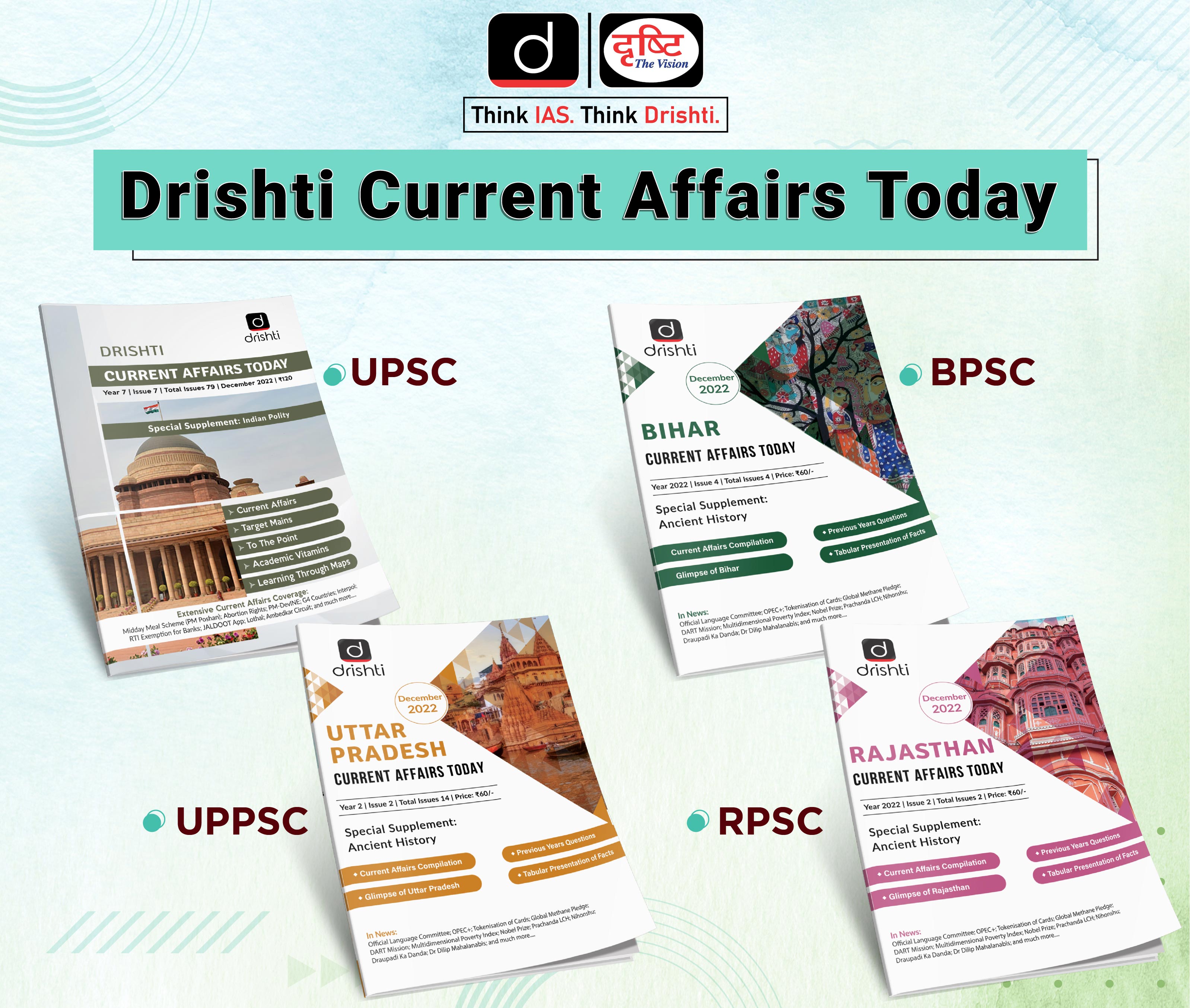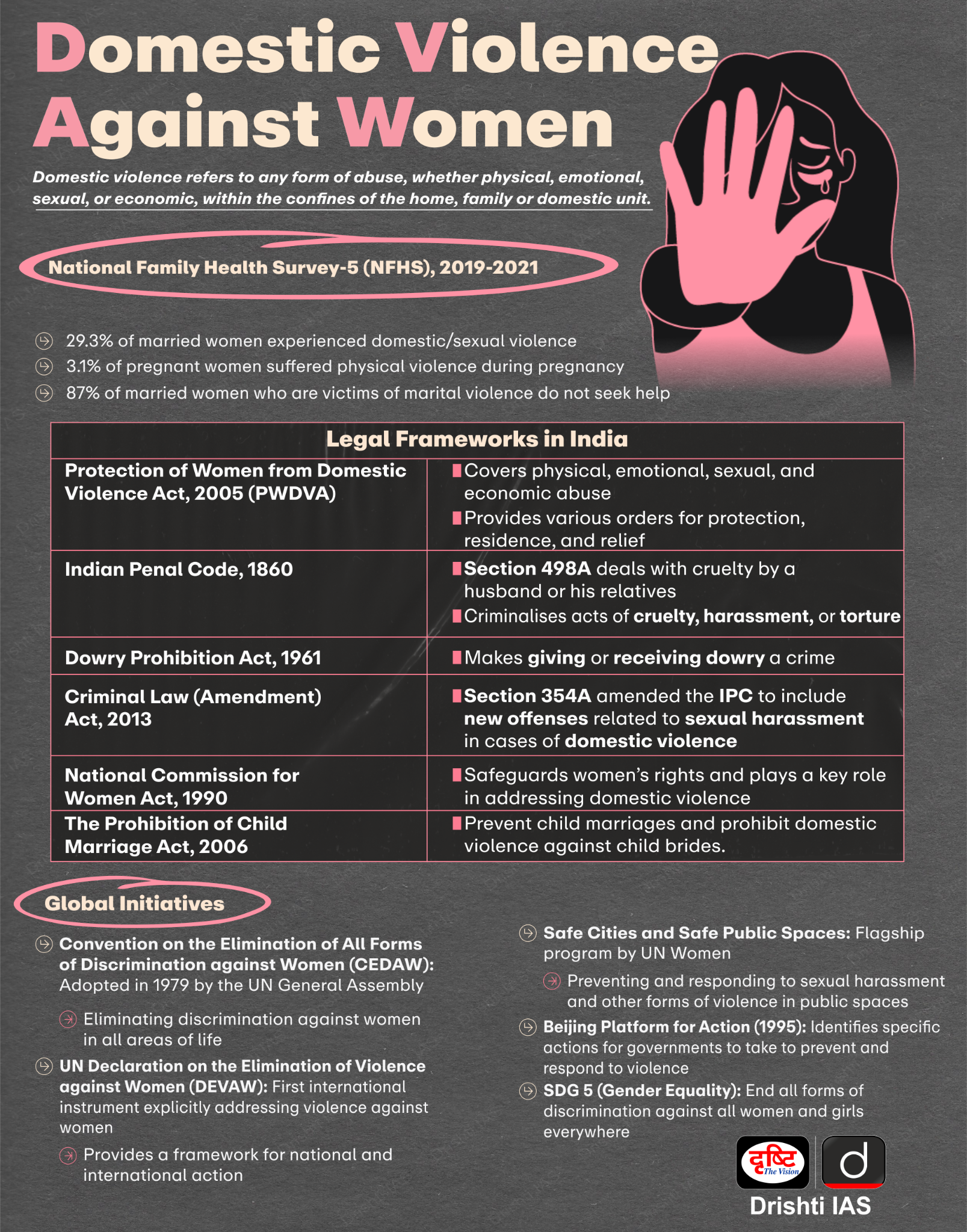Haryana Switch to Hindi
Haryana Records 65% Voter Turnout
Why in News?
According to the Haryana Chief Electoral Officer, the elections for 10 Lok Sabha seats and the Karnal Assembly seat in the state remained peaceful, witnessing approximately 65% voter turnout in the General Elections of 2024.
Key Points
- The Sirsa parliamentary constituency recorded the highest turnout of 69%.
- Following this, Ambala parliamentary constituency saw a 66.9% turnout, and Kurukshetra witnessed 66.2% voting.
- Similarly, Faridabad recorded 59.7%, Hisar 64.6%, Sonipat 62.2%, Rohtak 64.5%, Bhiwani-Mahendragarh 65.2%, Karnal 63.2% and Gurgaon 60.6% voter turnout.
- There were 99 polling stations which will be operated entirely by women staff and 71 polling stations manned by Person with Disability (PwD) employees.


Bihar Switch to Hindi
Achievement of Bihar Alcohol Ban
Why in News?
According to new research published in the Lancet Regional Health Southeast Asia journal, Bihar's alcohol ban in 2016 prevented 2.4 million cases of daily and weekly consumption, and 2.1 million cases of intimate partner violence.
- The ban is also estimated to have prevented 1.8 million men in the state from becoming overweight or obese.
Key Points
- A team of researchers, including those from The International Food Policy Research Institute, Poverty, Health and Nutrition Division, US, analysed data from national and district level health and household surveys.
- Strict alcohol regulation policies may yield significant population level health benefits for frequent drinkers and many victims of intimate partner violence.
- In April 2016, the Bihar Prohibition and Excise Act, 2016 brought about a near complete halt on the manufacture, transport, sale, and consumption of alcohol throughout the state.
- It’s strict enforcement made the ban an "attractive natural experiment to estimate the true causal impacts of a strict alcohol restriction policy on health and domestic violence outcomes".
- According to National Family Health Surveys-3, 4, and 5 before the ban, males in Bihar increased their frequent alcohol intake from 9.7 % to 15 %, while in neighbouring states, it increased from 7.2 % to 10.3 %.
- "After the ban 4.6 % points decrease in emotional violence and a 3.6 % points decrease in sexual violence have been observed.
Constitutional Provisions Related to Intoxication
- Directive Principles of State Policy (DPSP) (Article 47):
- Article 47 mentions that “in particular, the State shall endeavour to bring about prohibition of the consumption except for medicinal purposes of intoxicating drinks and of drugs which are injurious to health.”
- While DPSPs are not in themselves legally enforceable, they set goals that the state should aspire towards to establish conditions under which citizens can lead a good life.
- Thus, alcohol is seen by the Constitution and by extension, the Indian state, as an undesirable evil that needs to be regulated.
- Seventh Schedule:
- According to the Seventh Schedule of the Constitution, alcohol is a state subject, i.e., state legislatures have the right and responsibility to draft laws regarding it, including “the production, manufacture, possession, transport, purchase and sale of intoxicating liquors.”
- Thus, laws regarding alcohol differ from state to state, falling in the whole spectrum between prohibition and private sale.


Bihar Switch to Hindi
Rajaji Tiger Reserve
Why in News?
According Chief Wildlife Warden, a tigress translocated to the Rajaji Tiger Reserve from the Corbett Tiger Reserve has given birth to four cubs.
Key Point
- The tigress is one of three tigresses translocated from the Corbett Tiger Reserve to the Rajaji Tiger Reserve.
- Rajaji National Park is a key link to other potential tiger habitats, including those in Himachal Pradesh and Haryana.
- In western Rajaji Tiger Reserve, four tigers, three females and a male were translocated in December 2020, January 2021, May 2023.
Rajaji Tiger Reserve
- Location: Haridwar (Uttarakhand), along the foothills of the Shivalik range. It is part of Rajaji National Park.
- Background: Rajaji National Park was established in the year 1983 after amalgamating three sanctuaries in the Uttarakhand i.e., Rajaji, Motichur and Chila.
- It was named after the famous freedom fighter C. Rajgopalachari; popularly known as “Rajaji”.
- It was declared a Tiger Reserve in 2015 as the 48th tiger reserve of the country.
- Salient Features:
- Flora: Broadleaved deciduous forests, riverine vegetation, scrubland, grasslands and pine forests form the range of flora in this park.
- Sal (Shorea robusta) is the characteristic dominant tree species.
- Fauna: The reserve is home to more than 50 species of mammals including tiger, elephant, leopard, Himalayan black bear, sloth bear, jackal, hyena, spotted deer, sambhar, barking deer, nilgai, monkeys and over 300 species of birds.
- Rivers: The Ganga and Song rivers flow through this.
- Flora: Broadleaved deciduous forests, riverine vegetation, scrubland, grasslands and pine forests form the range of flora in this park.


Uttar Pradesh Switch to Hindi
Uttar Pradesh: The Leading Producer of Prime Ministers
Why in News?
India has had 15 Prime Ministers till now since independence. Uttar Pradesh, constituting 17% of India’s population (according to the 2011 census), has been the birthplace of six PMs.
Key Points
- 9 PMs have represented Uttar Pradesh in the Lok Sabha, some from multiple constituencies.
- Among all the PMs who were in office, 75% of the time, the office was held by a PM who concurrently served as a Member of Parliament from Uttar Pradesh.
- This includes the nearly 17-year tenure of Nehru, cumulative tenure of over 15 years of his daughter Indira Gandhi, six-year tenure of Atal Bihari Vajpayee (13 days in 1996, 13 months in 1998 and for five years from 1999), and the current Prime Minister, Narendra Modi, who has been in office since May 2014.
- While present PM was born in Gujarat, and subsequently became the Chief Minister of the state, he chose to contest elections from the Varanasi Lok Sabha constituency in 2014 and 2019.
- Every Congress leader has represented Uttar Pradesh in the Lok Sabha during their time in the PM’s residence except PV Narasimha Rao (Andhra Pradesh) and Manmohan Singh, who was an MP for Rajasthan and Assam in the Rajya Sabha.
- Uttar Pradesh is India’s most populous state with 215 million people (2011 census). It also sends 80 members to the Lok Sabha.
- Members of Parliament from Uttar Pradesh account for 20% of the Lok Sabha and a decisive victory in the state often determines who comes to power at the Centre











.png)
.png)











 Jammu & Kashmir
Jammu & Kashmir
 PCS Parikshan
PCS Parikshan


